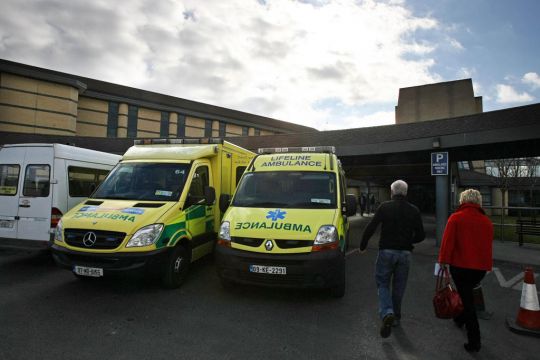Two major Irish hospitals were found to be non-compliant with national standards according to reports published by Health Information and Quality Authority (HIQA).
Tallaght University Hospital was found to be non-compliant with one national standard and University Hospital Kerry was found to be non-compliant with five.
The inspections were carried out in September and October 2022 at University Hospital Kerry, Cork University Maternity Hospital and Tallaght University Hospital.
All three hospitals have submitted compliance plans to HIQA in response to their respective inspection findings.
HIQA said they will continue to monitor the implementation of the compliance plans to address the areas in need of improvement identified on inspection.
They found University Hospital Kerry to be substantially compliant with two national standards, partially compliant with seven national standards and non-compliant with five national standards assessed on the days of inspection.
The hospital was substantially behind many other similar-sized hospitals in relation to its efforts to ensure compliance with the national standards, though HIQA acknowledges that the hospital management team was in transition at the time of inspection.
There were significant deficits in governance and management arrangements which impacted on the hospital’s ability to effectively and promptly manage any increase in service demand.
For emergency care in particular, HIQA found gross overcrowding of the emergency department along with significant patient flow issues.
Consultant oversight
The emergency department had a significant shortage of medical and nursing staff. At the time of inspection, there were no formalised arrangements in place to ensure consultant oversight in the emergency department 24/7.
The emergency department also had a significant shortfall on the rostered complement of nursing staff.
HIQA found that there should be more responsive oversight and management of patient-safety incidents and of the implementation of learnings and recommendations from incident reviews.
For Cork University Maternity Hospital, HIQA found the hospital to be compliant with two national standards, substantially compliant with seven national standards and partially compliant with one national standard.
HIQA found that there were effective formalised corporate and clinical governance for assuring the delivery of high-quality, safe and reliable healthcare, with effective oversight from the South/Southwest Hospital Group which had progressed since the previous HIQA inspection.
There were effective systems in place to proactively identify, manage and minimise unnecessary or potential risk of harm to women and babies.
There were also systematic monitoring arrangements used to identify and act on opportunities to continually improve the quality, safety and reliability of maternity services in the hospital.
There were shortages in the levels of medical, midwifery and nursing staff found at the time of inspection.
Hospital management were aware of these shortages and were working to address the issue through reassignment of existing staff. While targeted measures are required to address this risk, HIQA found good overall levels of compliance with the national standards assessed during inspection.
Finally. HIQA conducted a risk-based unannounced inspection of the emergency department of Tallaght University Hospital on October 27th, 2022.
The hospital was partially compliant with three national standards and non-compliant with one national standard.

While Tallaght University Hospital had management arrangements in place to support and promote the delivery of healthcare services, these measures were not fully effective in ensuring delivery of high-quality, safe and reliable healthcare services to the people who used the hospital’s emergency services.
Emergency department staff were striving to provide safe, quality care to the high number of patients presenting to the emergency department.
The hospital was challenged with capacity issues, insufficient isolation facilities and management reported a deficit in the numbers of community facilities and services to support transfer of care to the community.
At the time of inspection, the hospital had made progress in recruiting medical staff for the emergency department, but unfilled nursing and healthcare assistant posts were impacting the ability of the department to be fully functional.







